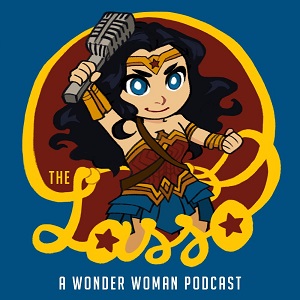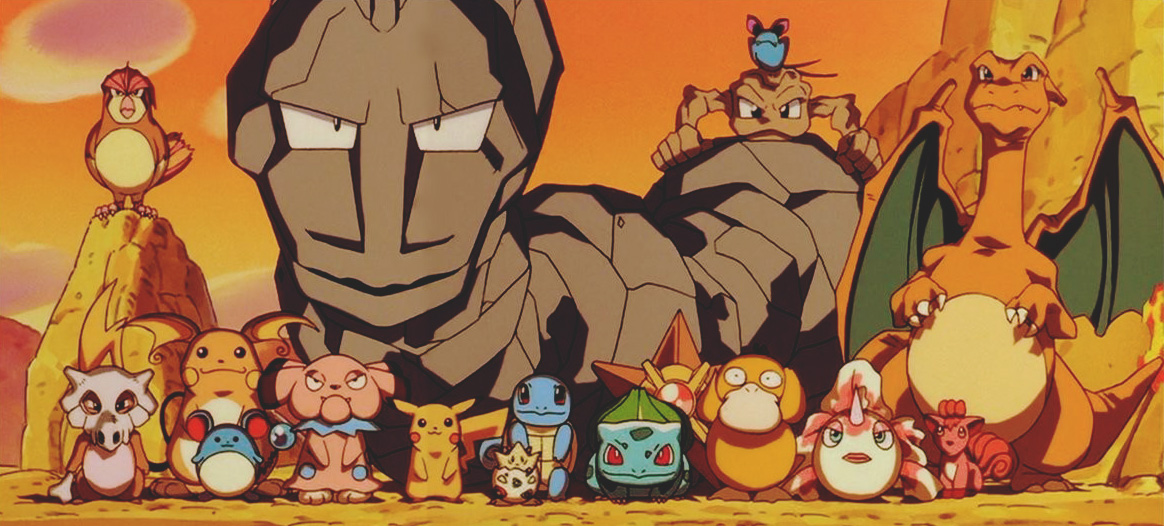
Medication Can Be Good, Actually
Content warning: suicide, depression, death.
What a fuckin’ shocker.
Before I get into this, I want to make it clear that I am not a medical professional in any way. This is just my (very) personal experience. Got it?
Good.
I was raised in an environment that was negative about modern medicine. I was made to skip school so I wouldn’t get vaccinated, my pleas for a diagnosis of asthma fell upon deaf ears, and I imagine discussion about medication for mental illness was so far off the table it might as well have been flying into the sun. As a pretty sick kid, I was always told that I should eat more spinach, or do yoga, or shine yellow light on myself, or follow what-fucking-ever the new-age health mags were saying.
And because I was young, I wanted to believe my parents when they said these things would help. Then I looked at my friends, who went to doctors and hospitals and had prescribed medication for their bad flus and infections and other ailments, and I got that strange sense you get as a kid, when you start to think, Why is my family so different?
As I got older and learned more about mental health, I realised that my family wasn’t as different as I’d thought when it comes to medication. You scroll through Facebook and find pictures of forests overlaid with phrases like, “The real antidepressant!”, or you post a tweet about getting diagnosed with a chronic or mental illness only to be met with, “Have you tried sleeping more? How about yoga? You just have to eat healthier!” or, even better, “My sister’s aunt’s cousin did this really vague and fake sounding thing and it cured them instantly, you should try it!”
Yeah. Okay. If you say so, buddy. I’ll eat some kale, I’m sure that’ll fix my ADHD right up.
Once upon a time, I worked up the courage to ask my drama teacher for an extension on my end-of-year project, because I’d been going through a particularly rough insomnia phase and hadn’t slept more than 4 hours in as many days. She laughed in my face and said, “When I can’t sleep, I just do work. Not sleeping is no excuse.”
It goes without saying that I didn’t get that extension.
A year or so earlier, I was sent to counselling for my insomnia. For years I’d been fighting for sleeping pills but my family refused to budge, and I guess this was the next-best option. Because talking about not being able to sleep would fix my insomnia, right? Six weeks later, my counsellor sent me on my way with a brief, “There’s a piece of the puzzle missing, but I don’t know what. Good luck!”
No sleeping pills in hand. Not even a consideration of giving them to me.
Still no sleep.
In my second year of university I finally worked up the courage to ask for sleeping pills. After a week of basically no shut-eye, I felt a literal zombie as I sat in my doctor’s office. Shadows so dark around my eyes that no amount of makeup could hide them, skin so sickly-pale I reflected light like the moon. I was a walking ghost, dead on my feet, a familiar state of being for me since forever.
During my teen years I had also, unknowingly, begun suffering from Chronic Fatigue Syndrome. Whether that was a cause of my insomnia, or vice verse, I’ll never really know—but CFS made my exhaustion exponentially worse than an averagely able adult.
I was, to put it bluntly, Fucked Right Up. Chronic insomnia is nothing to sneeze at, it messes your brain and body up in so many ways. If sleep debt is a real thing, I’ll be paying mine off longer than my student loan.
So, finally, I asked for sleeping pills. My doctor (bless her heart) had an inkling of my Fatigue and knew how bad my insomnia was, how much it was destroying my schoolwork. She gave me the good shit and sent me home (with all the proper warnings and guidelines, of course).
Those pills changed my life. For the first time I finally understood what it felt like to actually feel rested—or as rested as I could get, thanks to my Fatigue.
It took me over a decade to get through to others—and myself—that sleeping pills were something I needed. It was terrifying for me to ask for them, but sleeping pills aren’t even one of those medications that people will only speak of in whispers behind closed doors. If you say you’ve got sleeping pills, people are just like, “Oh, yeah. Who doesn’t?” For the kid who’d been told horror stories about what sleeping pills—and medication in general—would do to me, finally having the bottle in hand was a revelation.
Early last year, I started realising that I didn’t think or behave like my peers around me. I knew I had depression and mild anxiety (topped off with a somewhat-debilitating death phobia), but those were mostly under control and besides, this was something else.
Then I got diagnosed with ADHD. As the doctor explained what the diagnosis meant for me—and as I tried to pretend I wasn’t crying—I felt a weight lift from my shoulders. There was a reason for my struggles, and a way to help alleviate them. When he broached the subject of medication, he did so with that usual cautious caveat that I don’t have to take medication, though it’s often the most effective way to manage symptoms.
I was at the point where I basically said, “Sign me the fuck up.”
The first time I took my newly-prescribed ADHD medication, I was all nerves. Would they change my personality? Would I feel them? What if they didn’t work? What if they did work? I didn’t know how to exist without executive dysfunction, and I wasn’t sure what to do if my medication actually kicked my brain into gear.
I didn’t really notice the medication hit me, and then I read a book for an hour straight and cleaned my entire bathroom. Small achievements in the grand scheme of the universe, but they were things I’d never been able to do without some serious willpower—if at all.
Once more, my life was completely changed. My friends and family noticed the difference when I was on medication: that I would pay actual attention to their words, that I looked alive and happier, that I was creating so much more. I no longer disappeared into that grey fog I’d lived so much of my life in.
Of course, medication is only one part of managing neurological disorders. There’s therapy, exercise, general health, self care, behavioural therapy, etc., and all of these things can be important parts of living a good life. I drag yoga and kale in this post, but they can be part—key word being part—of a lifestyle that aids good health. However.
With ADHD—and other disorders—it can be hard, near impossible, to take the steps needed to make changes and build positive habits without the assistance of medication. While on my first ADHD medication, I made an effort to run more, to wake up in the mornings, to actually use a bullet journal, and to not get distracted by the internet. I built those habits over a few months until my side effects got so bad I had to swap to a new medication.
I’d thought my habits were ingrained enough that I could probably survive—not thrive, but at least survive—if I had to go without medication for any short amount of time.
I was wrong.
The new medication metaphorically burned out my brain. I went from being an unfocused zombie, right through to the other side where I became, again, an unfocused zombie. The pills took my overabundance of thoughts and completely silenced them until there was nothing in my head. At the lowest dose, my family would find me staring at walls for hours at a time. So my dose was increased. Again and again until it was clear that the dose wasn’t the problem. My doctor changed my meds once more.
While waiting for my new prescription—which took maybe a month and a half, longer than it should’ve—I went completely unmedicated again. At the time, I figured that my unmedicated brain couldn’t be any worse. Besides, I told myself, I’d barely felt the helpful boost of my meds anymore. Had they really been helping all that much?
Yes. Wow. Yes. They’d been helping a fuckload.
I never realised how severe my ADHD was, or how much it contributed to my depression and anxiety, until I had to go without medication for longer than a few days. My habits that I was so sure would keep me going in this scenario completely crumbled. I stopped sleeping; I’d lie on the bathroom floor for hours on end, failing to muster the ability to turn the shower on so I could lie down in that, too; I—extroverted and over-chatty moi—barely spoke to my friends; and I fucking could not write which was maybe the most torturous part of the whole experience.
I was angry and tired and depressed and anxious and I just couldn’t do it. I fell behind on deadlines, cancelled obligations, basically fell off the face of the planet. Where did those days even go? I barely remember them beyond a grey blur. All I could do was lie down and cry.
Even my poor oblivious dad began to ask, almost daily, if I was okay. I think that he, like me, had never realised how much my medication buried this part of me.
When I got my new medication—which, thankfully, still works like a charm—it was like being pulled out of a dream. Colour returned to the world, words flowed from my fingers, my depression melted back to its normal, manageable levels.
Long story short: fuck being without my medication ever again. Even with months of healthy habit-building behind me, I couldn’t force myself to function when I lost that extra help. Nobody asks people with physical disabilities to go without their aids—yet there I was, expected to go on like normal when I lost my mental aid.
People in my life still try to broach the subject of me eventually getting off medication, and when they do I respond with a pretty hearty “Fuck off”. If there’s one thing I learned from that month and a half, it’s that I have a mental disability. Nobody takes that seriously.
Still, even after understanding how much my ADHD meds changed my life for the better, I was still iffy on the idea of antidepressants for myself. Largely because I didn’t think my depression or anxiety were bad enough when I was on my ADHD medication. Talk about denial.
Last month, I burst into tears in my therapist’s office as I confessed, “I can’t handle feeling like this anymore. I just can’t do it.” I think that was the first time I really cried in front of her.
I try to not talk about it much, but my death phobia messes me up something awful. Finally, in June, I reached a point where the panic and horror became too much for me, and I wanted something—anything—that could help with the intrusive thoughts, panic attacks, and suicidal whispers.
People would tell me how strong I am, but it’s hard to feel strong when I can’t stop freaking out about death. If I’m so strong, why can’t I get my brain under control on my own?
I asked my therapist about antidepressants, she suggested anti-anxiety medication. I have a month to think about it before I fly home and talk to her again and, in all honesty, I’m scared. I get it, the idea that you should be able to control these feelings yourself, that you’re not strong enough when you can’t. The fear that medication will harm or irreversibly change you. Withdrawal is scary, side effects can seriously suck.
But, heavens above, I will take anything over feeling like this anymore—and I hate, hate that it took me getting this bad to ask for help. I’m pretty open about mental health and a big advocate for looking at medication as a serious option, yet I was terrified about voicing my consideration of antidepressants. How hard must it be for those of us who’ve only heard the horror stories, the misinformation, the fake-as-fuck testimonials of people who simply think positive?
I’ve been affected by suicide too many times, watched loved ones fight their own brains, seen the way male friends and family clam up about their pain, been horrified by the realisation that almost all my childhood pals and I had unknowingly suffered shared mental health struggles as we silently sat beside each other in class.
None of this is uncommon, so why do we pretend that a nice walk in the park and some kombucha will make the bad feelings piss off? If abstract ideas of spirituality and health were the cure we needed, we wouldn’t be where we are now. If thinking positive fixed depression, our cultural denial of mental illness would’ve wiped all our issues away.
I’m sick of being scared and quiet about the help I need and how much my medication helps me. Nobody should be made to feel shame or guilt because their brain sucks. Fuck that noise.
Medication isn’t the cure, and it’s not the only option. But it sure as hell can fucking help.



